Would you like to learn about a new way to secure cash for your business? Do you need cash quickly but don’t know much about the different options available to your business other than a standard business loan? If you’d like to learn more about a widely used but still largely unknown financing option called invoice factoring, then this online lesson is for you.
Get Acquainted with the Fundamentals of Factoring Receivables
If you’ve never heard of the term invoice factoring, you are in good company. Though it has been around for thousands of years, it isn’t known by a large number business professionals and the wider public in general. If you studied business or finance in college, there may have been a footnote on factoring accounts receivables but likely nothing more. And we can assure you that though terms such as factoring receivables may sound strange and complicated at first, once you become familiar with the language, you will come to understand how the process works fairly quickly.
Okay, so enough about that. What exactly is factoring accounts receivables? It is a way you, the business owner, can get cash in 1-2 days by selling your current invoices (your receivables) to a third-party factoring company. Meanwhile, your customers pay their invoices by the stamped due date the same way they always have. The factoring company then collects an expedited processing fee or percentage from you, usually between 2% and 8%. This, in a nutshell, is invoice factoring.
A Walk-Through of the Invoice Factoring Process
Here’s a more detailed picture of how the process works:
- You tell an invoice factoring representative you need $10K for your business … it could be for any myriad of reasons, such as poor cash flow, rapid growth issues, a slow business cycle or just needing to pay an unexpected bill. Factoring services is not a business plan-dependent financial service.
- You complete an application (generally takes less than an hour) providing verifiable information about your business as well as a copy of those invoices you’d like to factor. Whenever possible, you should choose the largest, most-recent invoices from the most reliable, creditworthy clients.
- The factoring company will run a credit check on your client, not on your actual business. And let’s pause here… this is a key difference between receivable factoring and say applying for a loan at a bank. Factoring companies focus more on your clients’ creditworthiness and good standing.
- If your client passes the verification and due diligence, the factoring company will begin the process right away of purchasing those invoices (receivables). It will pay you the bulk of the value of the invoice (between 80% and 95%) within 48 hours.
- You take your money and use it however you need to. The factoring company does not monitor or review how you spend your own money. Remember, factoring is not a loan and there’s nothing to pay back.
- Meanwhile, your trustworthy client pays its bill on time to the factoring company, which then remits you the remainder (that 20% or 5% mentioned previously). It then takes a percentage (most companies start at 1% and go from there) for handling and expediting this process and charges a fee for each invoice processed.
- If the client doesn’t pay its bill on time, the invoice factoring company, acting as a collections’ agent, will follow up with the client to get paid. If over time, the client still does not pay, the factoring company will take on this bad debt, not you. This is called non-recourse factoring in that the factoring company owns and is responsible for the invoice in its entirety.



